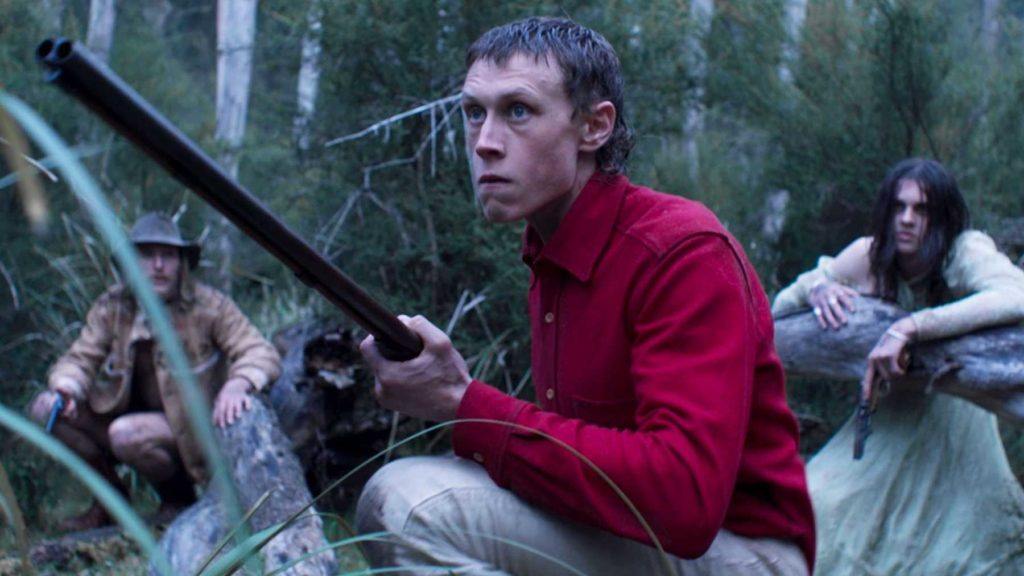True History of the Kelly Gang

George MacKay stars in TRUE HISTORY OF THE KELLY GANG. (Photo: IFC Films)
It doesn’t matter whether True History of the Kelly Gang is authentic. After all, it begins with a caveat: “Nothing you are about to see is true.”
This relentlessly bleak and ruthlessly violent biopic of notorious 19th century Australian outlaw Ned Kelly compensates for some narrative shortcomings with a visceral style and audacious attitude that captures the freewheeling spirit of its anarchic antihero.
To be fair, this punk Western is much more about Kelly himself than his gang, as the title implies, essentially dividing his story into his childhood and his adult years.
As directed by Justin Kurzel (Macbeth), the film evocatively conveys a harsh rural landscape populated by scoundrels and crooks, with resentment over British colonialism simmering beneath the surface as Irish and Australian gangs clash.
That’s where young Ned (Orlando Schwerdt) lives in a shack with his mother (Essie Davis), who desperately sells herself and anything else for a quick buck. Ned is thrust into a survival-of-the-fittest world of desolation, tragedy, despair, quick tempers, and macho posturing.
His androgynous appearance masks an internal ferocity as he learns the ropes from a grizzled bushranger (Russell Crowe) whose motives are suspicious. Together, they settle a grudge with a corrupt lawman (Charlie Hunnam).
A decade later, Ned (George MacKay) is trying to break free from his past and reshape his family legacy. But he keeps being drawn to the brutality back home, which frays his mental stability and prompts him to form a primitive cross-dressing gang with his mates. As they escape the half-hearted pursuit of a snobbish constable (Nicholas Hoult), their Robin Hood-style grassroots antics gradually become more vicious.
Kelly’s story has been adapted for the big screen at least twice before, with Mick Jagger and Heath Ledger each earning mixed reviews in the title role. The ferociously committed MacKay (1917) continues to showcase his versatility by finding depth and complexity in a troubled and ultimately tragic figure.
The screenplay bogs down in persistent narration that’s not especially insightful. Plus, it strains to justify Ned’s actions, perhaps to provide moviegoers with an emotional entry point.
More of a brooding, introspective character study than a traditional frontier adventure, the film offers a compelling exploration of the psychology behind the evolution of a folk hero. Along the way, it’s not as concerned with historical details, which is just the way Kelly would have wanted it.
Rated R, 124 minutes.